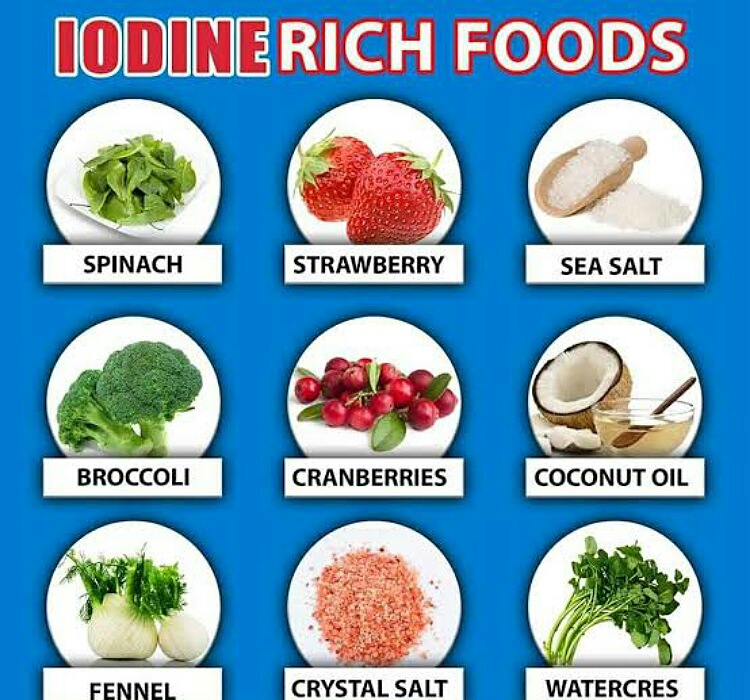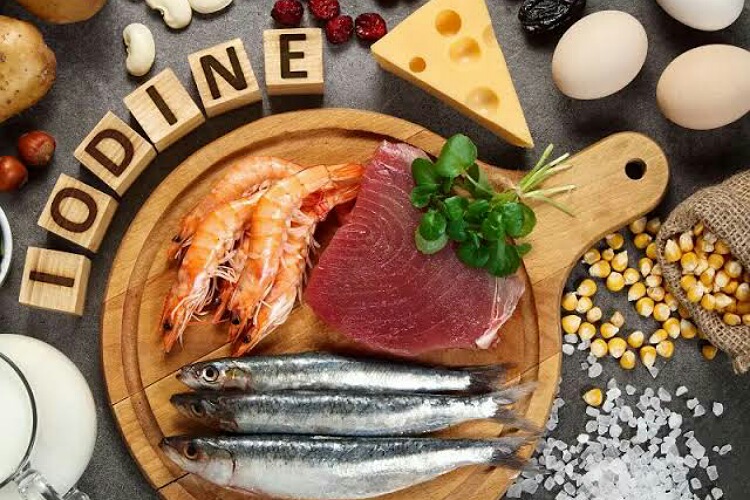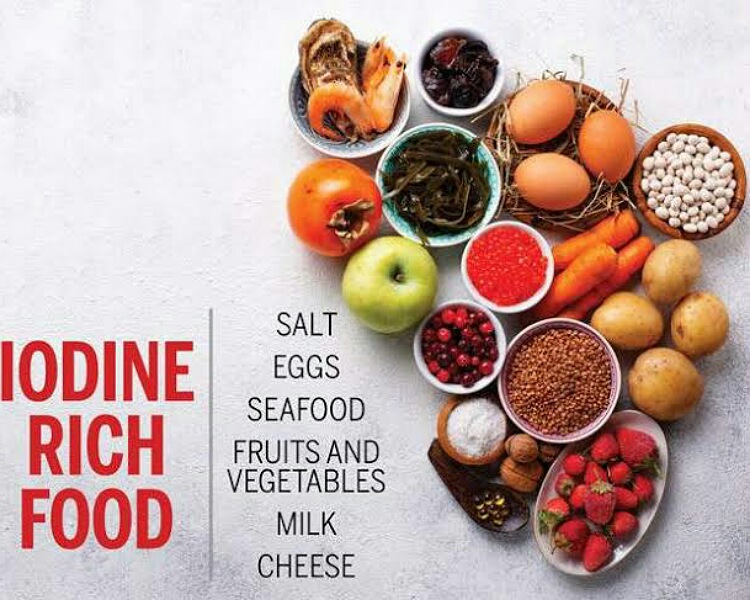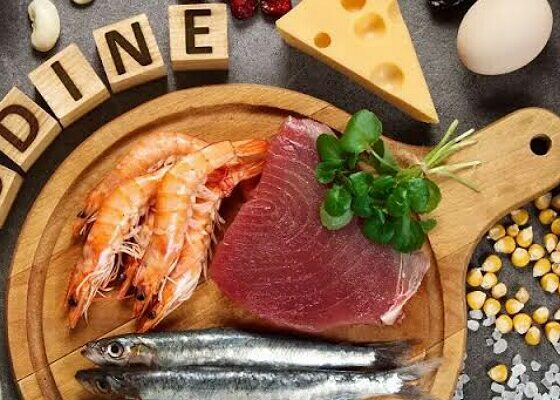Iodine is an important mineral that thyroid gland and the body needs. Which are the iodine rich foods that we should consume to have good thyroid function?
Iodine and it’s needs
Iodine is an important mineral that our body requires albeit in small amounts. The thyroid gland particularly demands this mineral for production of thyroid hormone. Thyroid hormone controls body metabolism and iodine deficiency could lead to low thyroid hormone and its ill-consequences on the body.
The recommended daily requirements of this mineral is 150 micrograms for an adult. Pregnant women and lactating mothers need more of iodine. But one third of the people in the world are unable to get enough iodine from diet. This deficiency is common in certain areas of the world including the European nations.

Iodine deficiency leads to thyroid swelling called goiter. Moreover, the patient has lethargy, cold intolerance, fatigue, dry skin, weakness, weight gain etc. If the diet of kids is deficient in this mineral, they suffer from cretinism with mental and growth retardation. Hence, fortification of salt with iodine is done in many countries to prevent health issues of iodine deficiency.
Iodine rich foods
Consumption of iodine rich foods could treat and prevent iodine deficiency and thyroid problems. Here is the list of such foods
Seaweeds
Seaweeds are low in calories and are rich in minerals, vitamins, and antioxidants. They are one of the highest sources of iodine. Three popular seaweeds are Nori, Wakame and Kombu Kelp.
Nori is a red weed. Its iodine content is lower than that in brown seaweeds. It is used in rolls of sushi. Every g of it has 16–43 mcg of iodine. Wakame is a sweet brown seaweed. It goes into the making of miso soup. On an average, these seaweeds have around 66 mcg per gram of the weed.

And kombu kelp is also a brown seaweed. It comes in a dried or powdered form. It’s use is in making Japanese soup stock or dashi. It has very high iodine content at 2984 mcg per gram. High iodine intake is not good either.
Cod fish
This white fish has a mild flavor and delicate texture. It is versatile with low fat content and low calories. But it is rich in iodine and other minerals. 85 grams of it has 63-99 mcg of iodine.
Shrimp
It has high protein, low calories and is rich in iodine, selenium, phosphorus, and vitamin B12. 35 mcg of iodine is present in 3 ounces of shrimp.
Tuna
This seafood also has high protein with low calories and high iodine. It is also rich in iron, potassium and B vitamins. It also contains high amounts of omega 3 fatty acids. The amount of iodine in it is lower than that in cod fish and such leaner protein fish. Three ounce has 17 mcg of iodine.
Dairy and dairy products
Dairy and dairy products have a lot of iodine in it. A study analysed the iodine in 18 brands of milk sold in Boston. The amount was at least 88 mcg in 1 cup or 8 ounces of milk. And some of the brands had as high as 168 mcg of iodine in one cup. Similarly, yoghurt and cottage cheese have a lot of iodine in them.

Also, read Hypothyroidism: foods to eat and to avoid!
Iodized salt
It was in early 1920s that addition of iodine to table salt commenced in the USA. This was a preventive measure to decrease the incidence of goiter and thyroid hormone deficiency. 1 teaspoon of table salt has 71 mcg of iodine.
